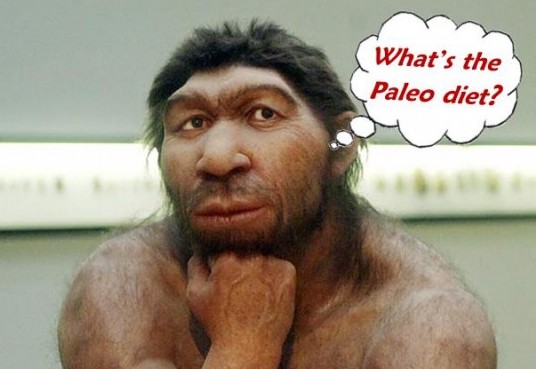
Americans are obsessed with diet fads. The latest one is the popular paleo diet. The U.S. News and World Report recently had a panel of health experts rank 35 diets in terms of safety, nutrition, weight loss and protection against diabetes and heart disease. The Paleo Diet ranked DEAD LAST! Eat Paleo and you risk being DEAD FAST, according to the statistics! The leading cause of death in America for the past 100 years is heart disease. It kills 1 in 4. The high meat consumption advocated by paleo dieters will continue this unfortunate trend.
What diet was ranked #1 for best heart-health by nutrition experts? The Ornish diet, a plant-based diet with no meat consumption. There has only been one diet style scientifically proven to prevent and even reverse heart disease and that is a plant-based diet. In my clinical practice, I have seen reversal of heart disease and diabetes from this powerful diet style.
The BIG Meat industry would like to continue the myth that the paleo diet is healthy. Advertising that grass-fed beef is healthy for you is scandalous. Grass-fed beef is better than grain-fed beef, but that is beside the point. Eating "Paleo", where most calories come from meat, is toxic to the human body and to our planet, as world renowned internist and health expert Dr. McDougall eloquently points out. The truth is, the biggest and most profound impact one can make for health and the environment is adopting a plant-based diet.
Compare the nutritional profile of grass-fed beef to that of plant food. As an example, 1 oz grass fed beef will give you about 25 mg of Omega 3 fatty acids vs 1 TBSP of flax seeds which gives you a grand total of 2400 mg of Omega 3 fatty acids. That's 96 times more Omega 3s than beef! What about protein? If we compare 100 calories of grass fed beef to 100 calories of kale, the protein content is about the same! Roughly 10 grams. But the nutritional profile difference is very significant. Kale is loaded with Vitamin A, folate, B vitamins, Vitamin C, vitamin K, calcium, omega 3s, complex carbs and fiber. Meat is virtually devoid of those nutrients. So, in a laboratory, kale is absolutely superior to beef in nutritional content. But what about in the living laboratory of life in people?
The longest lived cultures in the world adhere to a plant-based dietary pattern. Longevity hot spots, or "Blue Zones" have been identified in elders from Okinawa, Sardinia, Loma Linda, Icaria, and Nicoya Peninsula. What is their secret? A plant-based diet.
What do experts say? To achieve longevity, the American Cancer Society recommends reducing cancer risk factors such as not smoking, maintaining optimal body weight, eating less red meat and eating more veggies. Yes, eating meat is a risk factor for cancer.
Science tells us we live in an interconnected cosmos. Ancient seers in India had a saying for this that predates modern physics: “The microcosm (your body) is a reflection of the macrocosm (the universe, our earth).” Your body is made of 70% water and the earth surface is 70% water. Your brain has 100 billion neurons and our universe has 100 billion stars. Your body has 1000 trillion, trillion atoms that are made of stardust. It is astonishing to note the interconnected of all life on earth.
Because of this interconnectedness, the experts in science and nutrition are realizing that what we eat directly impacts not only our health but the environment. Just a few months ago, in FEB 2015 U.S. Scientific Advisory Committee gave this statement that I have paraphrased:
Because of this interconnectedness, the experts in science and nutrition are realizing that what we eat directly impacts not only our health but the environment. Just a few months ago, in FEB 2015 U.S. Scientific Advisory Committee gave this statement that I have paraphrased:
Sustainable diets are higher in plant-based foods, such as vegetables, fruits, whole grains, legumes, nuts, and seeds, and lower in animal-based foods. These diets are more health promoting and have less environmental impact than is the current U.S. diet. Current evidence shows that the average U.S. diet has a potentially larger environmental impact in terms of increased GHG emissions, land use, water use, and energy use, compared to the above dietary patterns.
As Hippocrates said thousands of years ago, “let food be thy medicine, and medicine thy food”. Vegetables, herbs, fruits, seeds, and nuts are medicinal in that they are loaded with thousands of health promoting phytochemicals and micronutrients. Eating in this way will allow one to maintain a strong and healthy body, achieving the maximal life span by preventing diabetes, hypertension, heart disease, and obesity. Is there any more compelling reason to change your diet today and help yourself and help the earth?
Comments
Post a Comment